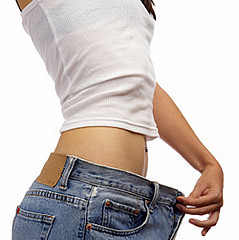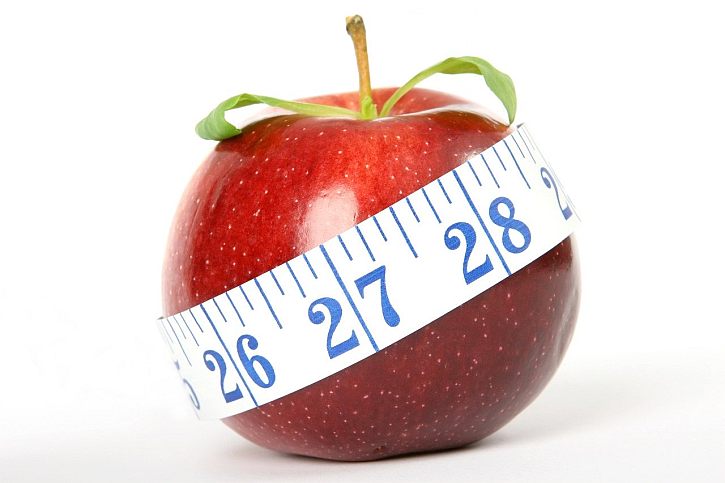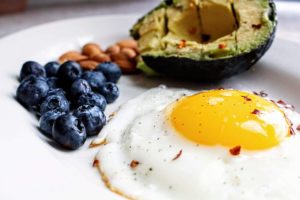Since at least the nineteen sixties Western countries have been putting on weight. This is partly due to a change in our lifestyles as less of us are involved in heavy manual labour and also to changes in the way our food is produced. Additionally the widespread availability of food and increased affluence in society in general have all contributed to the fact that many more of us are now at risk from health problems relating to weight gain. In the last ten to twenty years all of these issues have contributed to an increase in interest in dieting. Pills, potions and exercise programme have all been deployed in the battle to maintain a healthy weight. However, one of the simplest ways to manage your weight is to eat healthily.
Eating is Good for You
One well proven scientific fact is that eating is good for you, which you could be forgiven for disbelieving if you read some of the more extreme dieting manuals. The biggest issue for many of us is simply our portion sizes and it appears that our understanding of what constitutes as a healthy portion size, has grown out of all proportion in recent years. For dieters the real secret is to reduce portion size, rather than to cut meals. Cutting meals is not only unhealthy, but it’s well known way to be the motorway to “Failure City” (population rapidly expanding) on the dieting front. Our bodies don’t like change and they will deploy a range of tactics to get their daily fix of food.
Funny Looks at the School Gate
Today there are few diets which will tell you to cut out breakfast; many of us actually manage to do this ourselves when under pressure to pack the kids into boxes, water the cat, walk the yucca and take the little sandwiches to school; or something like that. Yes, mornings can be chaotic and usually the last person to get breakfast is you, or rather the last person doesn’t get breakfast but sneaks two or three muffins and bag of crisps on the way to work. The snack devil is everywhere and if you don’t have a bite to eat before you leave the house it’ll be waiting at a bakery just around the corner.
Easy, filling and healthy breakfasts include simple things like a bowl of cereal to which a banana or handful of dried fruit can be added. The chances are that with a bit of brain food on board you won’t be left standing at the school gates in your slippers with a houseplant and a sandwich.
Drinking Loads
There is some science behind those diets that involve drinking one or all of your meals. Researchers have found in a number of studies that liquidised meals take longer to digest, leaving you feeling fuller for much longer. This reduces the snack impulse which is the result of a chemical signal sent from a disgruntled stomach to a slavish brain. While all manner of liquid lunches are available on the market the simplest, cheapest and easiest approach is to make your own in the form of soup; shop for groceries regularly (have them delivered if necessary) and cook up a nice batch of soup in advance. Most soups take to freezing very well which means you can stock the freezer and de-frost and reheat at work if necessary.
Couch Potatoes, Chips, Chocolates
Tea, or dinner, depending on where you live, is also an important meal that shouldn’t be overlooked. Again, cutting portion sizes helps but a balanced meal eaten earlier in the evening is better. Aim for higher protein, lower carbohydrate meals (more meat or fish and less pasta and/or chips) and also concentrate on eating earlier in the evening. Many people eat at the end of a busy day and then collapse on the sofa. Eat as soon as possible and take that yucca for a walk afterwards. This helps to digest the food and combats the sedentary lifestyle so often quoted as being responsible for our growing waistlines. A thirty minute brisk walking is good for you, believe it or not!
The S Word
Supper; yes, I’ve said it and I’m not afraid of the consequences. This is banned by all major diet plans, it’s tantamount to snacking. The fact is that after a sensible portioned dinner and a brisk walk, you may well feel peckish in the evening. Give in; but in a good way. Low-calorie crisp breads and a little low fat hummus are not against the law at this time of the evening and if you’ve been eating sensibly throughout the day you’ll certainly deserve it!
Contributed by Carlo Pandian:
Foodie lover based in UK, Carlo write on diets, online groceries by Milk & More and the benefits of dairy products. When he’s not online, Carlo likes eating out with his friends and visiting the countryside to source organic products.
![102/365 [eating healthy]](https://farm6.staticflickr.com/5309/5614502787_8dfeb6d02c.jpg)



Yes, I think we should help them. By being good friends/neighbors to them. We let them know that we care about them and help educate them in healthy eating habits and portion control. If they aren’t receptive to that, another option would be to invite them to be your exercise buddy. Take them with you to the gym or on walks or jogs. It can be a bonding experience as well as being healthy.